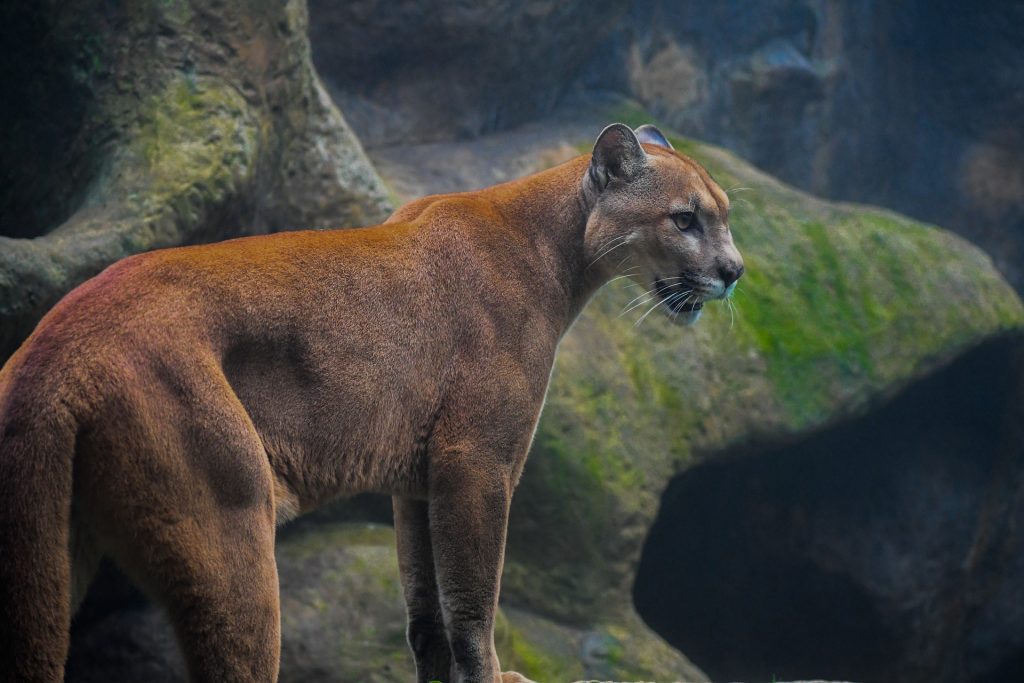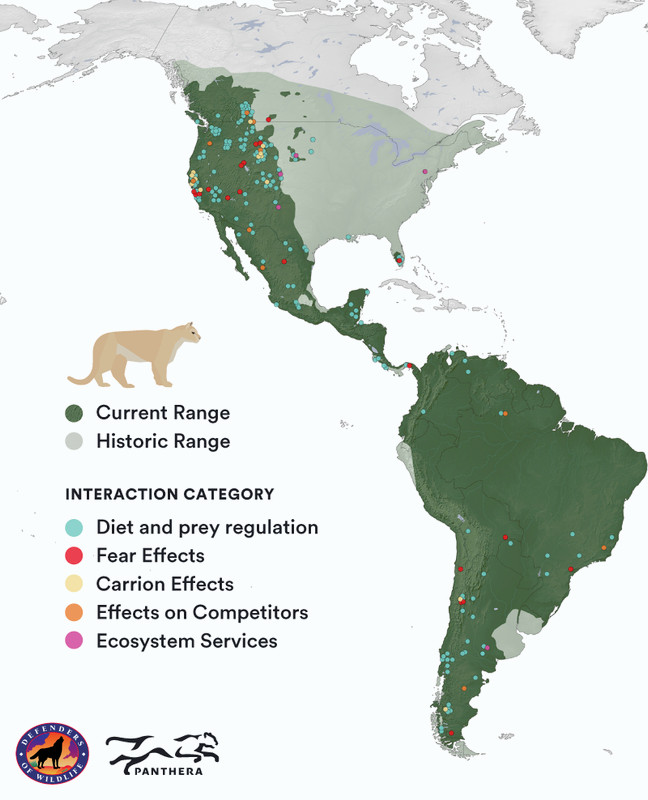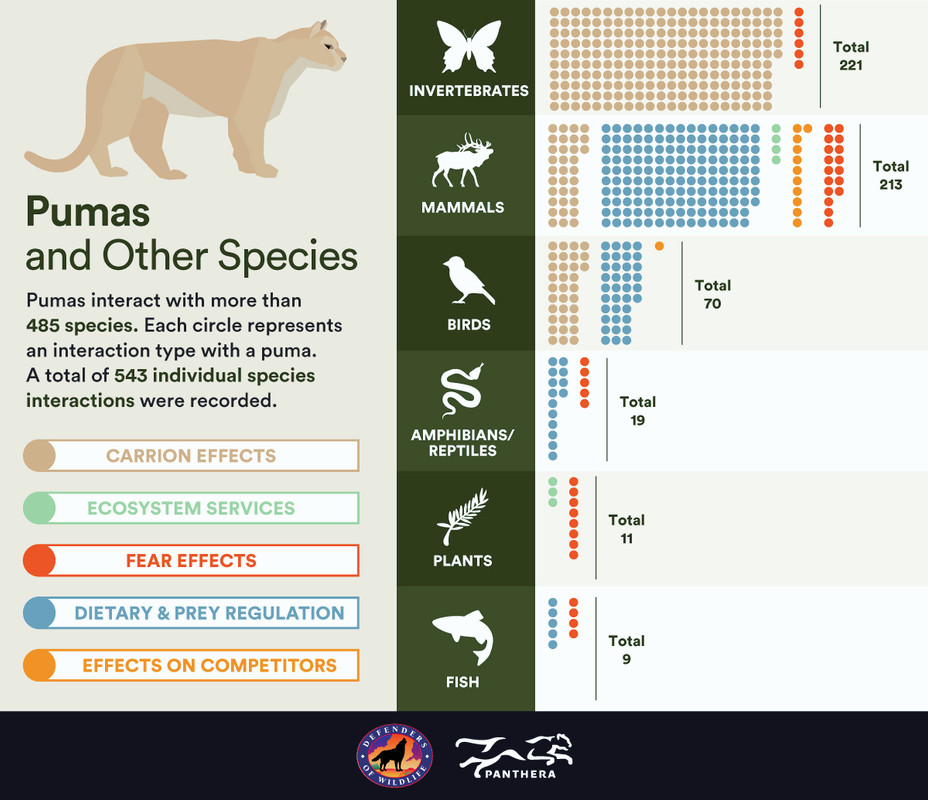
A study by Panthera, published 18 January 2022, found cougars are a major broker of ecosystem energy and nutrients, with relationships spanning more than 485 species.
Panthera, a global research and advocacy organization for wild cats, conducted a literature review of peer-reviewed journals across the Americas to inform their report.
Cougars have 100+ common names, including puma and mountain lion, and span 28 countries across their range, from Chile to Alaska, USA.
They have been extirpated from much of eastern North America, due to hunting, human conflict and land use change.
SUPPORT MY WORK ON PATREON FOR TRAIL CAM VIDEOS, EXLUSIVE ART & UPDATES

How cougars nurture ecosystems
“These findings crystallize how pumas keep ecosystems healthy and resilient, playing an invisible but essential role in linking an awesome number of plants and animals via energy and nutrient pathways,” says Panthera Puma Program Director and senior author, Dr. Mark Elbroch.
When a cougar takes down a deer, for example, the kill will feed a broad range of species, including scavenging beetles, bobcats, foxes, skunks, crows, ravens, eagles, plants and fish.
In the nutrient-scarce winter months in the Pacific Northwest, for example, these cougar kills can have life-sustaining impacts for many creatures.
“This work also underscores how human communities in the Americas benefit from living in ecosystems with pumas,” adds Elbroch.
“Because these big cats support ecosystem health, they, in turn, support the human communities tied to these ecosystems.”

Latin America massively underrepresented in cougar research
The study found a dramatic regional skew in research towards Canada and the USA, with underrepresentation from Latin America.
Given the rich biodiversity of tropical forests, and the lack of data from Latin American ecosystems, cougar interactions may be much broader than current data availability suggests.
“These biomes are among the most diverse ecosystems in the world,” says Elbroch.
“Just a single study from these regions might double the number of relations we have recorded for pumas.”
